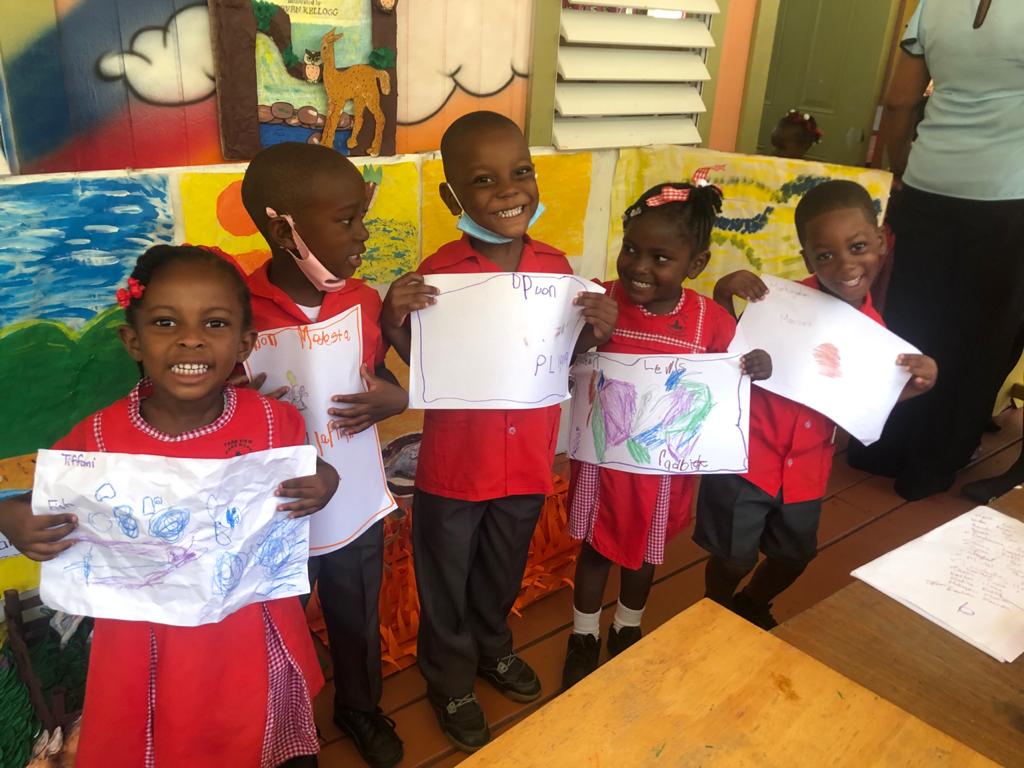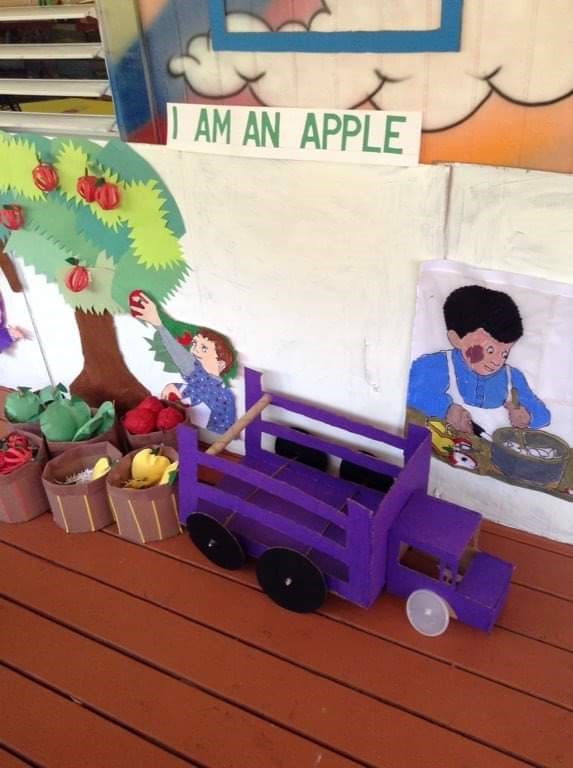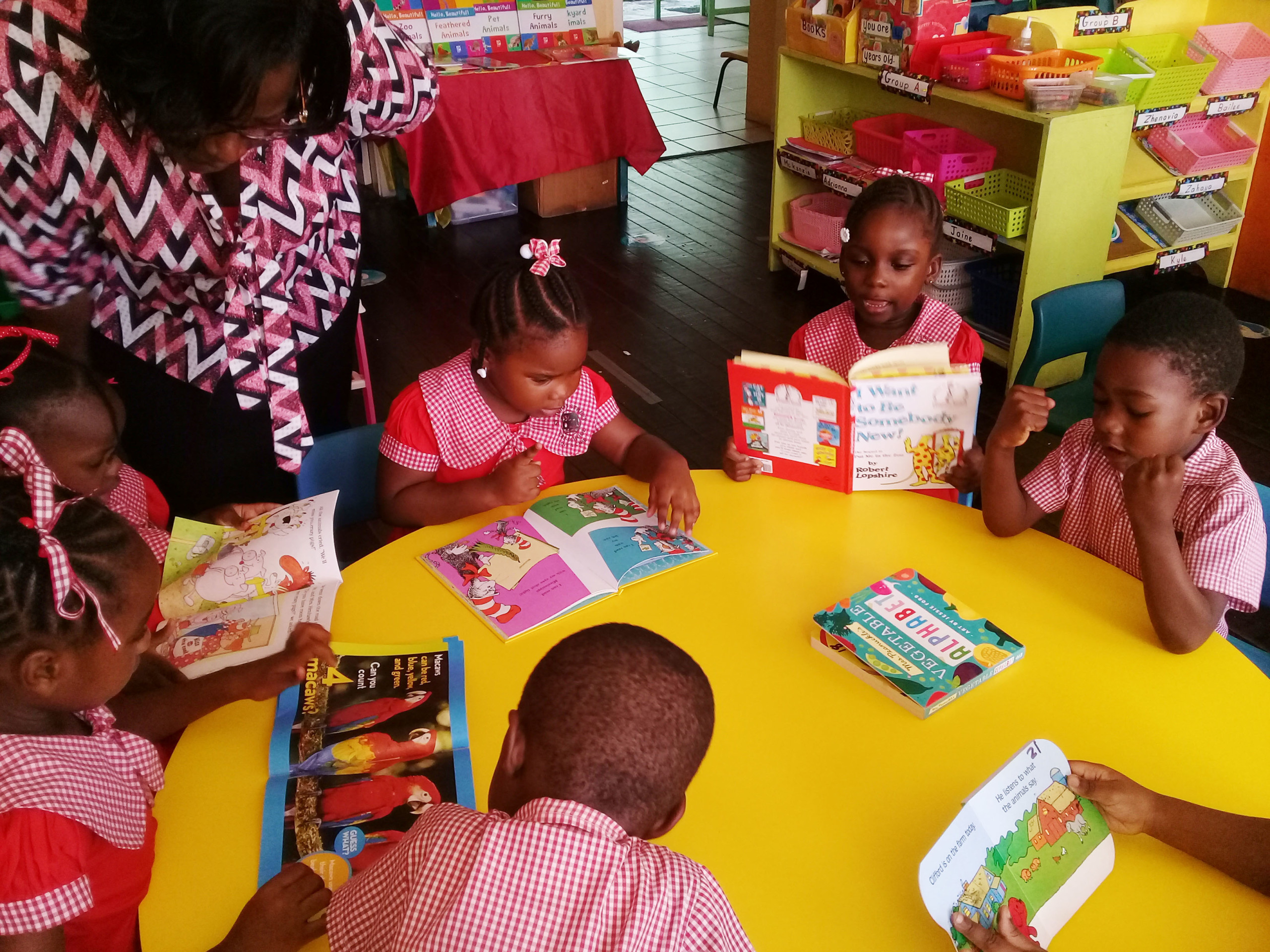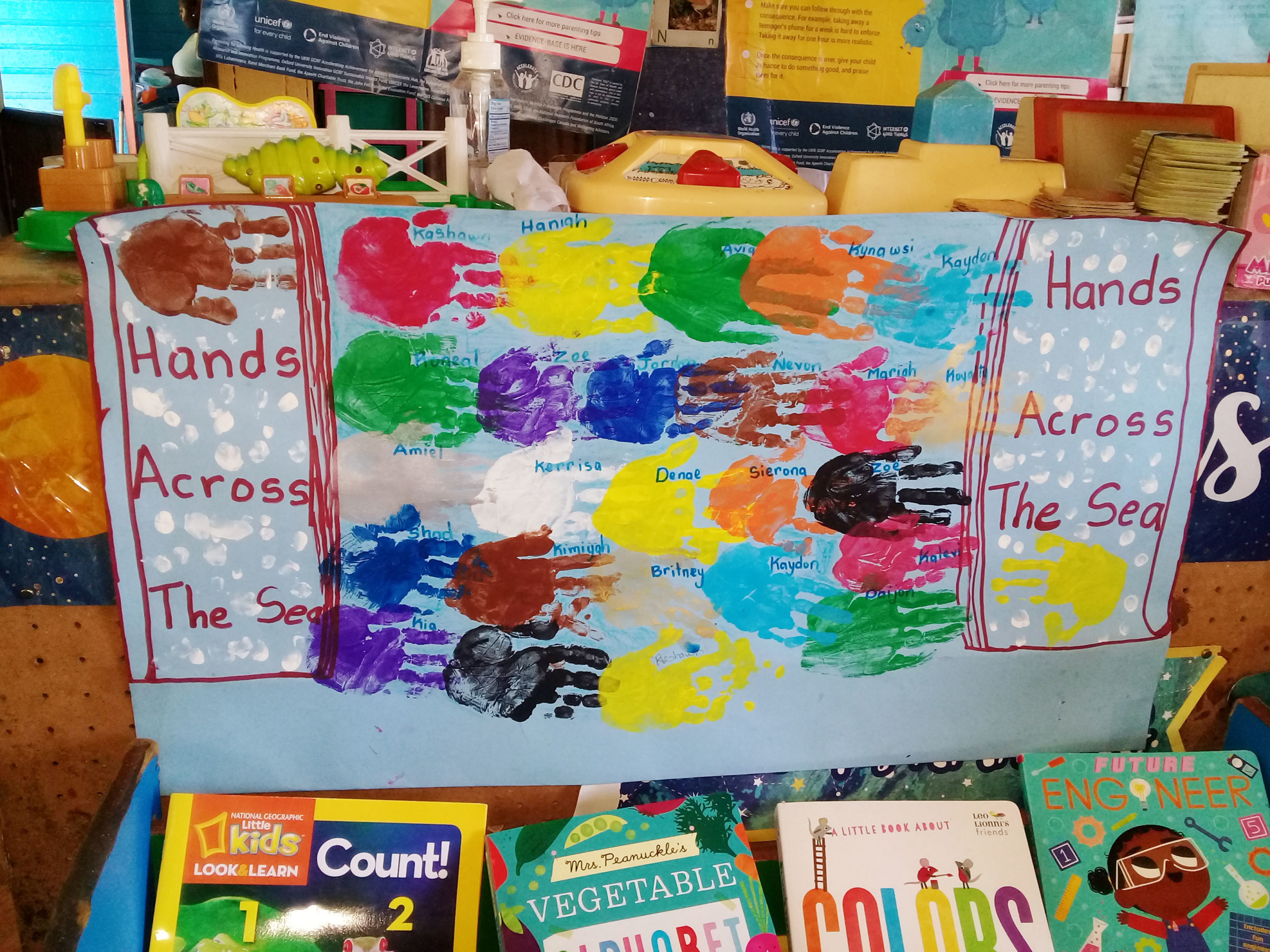The parental engagement with the “I Am an Apple” book represents a new chapter of transformative programming and opportunity. Hands Across the Sea is conducting “The Grenada Preschool Initiative” to jump start early literacy programs with hopes to expand to all six of the Eastern Caribbean island countries where Hands’ work is based.
Since 2007, Hands Across the Sea and its Caribbean Literacy and School Support program, CLASS, has been embedded in island schools. The CLASS approach: send great books, create or rejuvenate lending libraries, and sustain literacy gains has reached more than 150,000 children in grades K-12 by placing more than half-a-million books in over 435 primary schools, secondary schools, and community libraries. In 2020, Hands Across the Sea more than doubled its reach by expanding the scope of its work to include nearly 15,000 additional children each year through preschool literacy programs.
Expanding the preschool literacy program is a critical investment for Hands Across the Sea and the children it serves. More than a third of Eastern Caribbean children live in poverty, and resources are scarce in island homes. Most children are not exposed to books and reading until they reach a Hands Across the Sea library in primary school. The Early Pages Progamme (EPP) is the first universal preschool initiative in the Eastern Caribbean to ensure that all school children beginning at age three have access to books and literacy resources.
The 2020 launch of the Hands Across the Sea EPP placed library “starter sets” in nearly 500 preschools in six Eastern Caribbean countries. The initiative encourages preschools to focus on early literacy programming for their students and comes at a time when the OECS’ Education Management Unit (EDMU) is set to provide Preschool Teacher Training. The EPP serves as a bridge to the CLASS Program and builds on the effort and investment of the USAID Early Learners’ Programme.
In Grenada, where Hands is formally piloting programming, Literacy Links Gloria Bonaparte and Bernadette John are working alongside and mentoring teachers in early literacy education, curating libraries with culturally appropriate books, and establishing book lending so parents can bring books home for their children. A set of Pilot Schools work closely with one another and the Literacy Links to create classroom activities that make literacy an explicit part of the preschool environment, invite direct parent and caregiver participation in early literacy, and bring community awareness to the power of the initiative. Year-two (2021-2022 school year) extends the pilot to include an additional set of schools as Hands monitors, evaluates, and refines the program. A Best Practice, methodology, and roll-out are expected to follow.

The research shows….
Investing in early childhood literacy is shown to have a long-term return. Early literacy is linked with academic achievement, reduced grade retention, higher graduation rates, and enhanced productivity in adult life. The Perry Pre-School Longitudinal Study reveals that students who received preschool literacy education were more successful at every milestone than those who did not, and that by age 21 the benefits for these students represented $7 for every $1 dollar invested.




